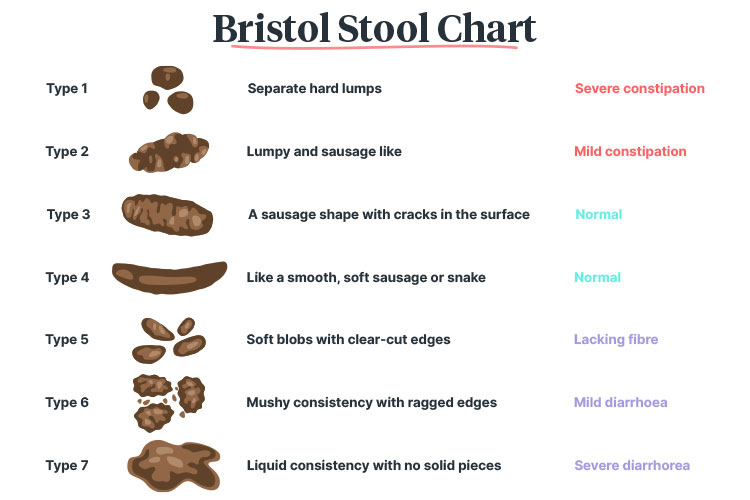Introduction
In today's medical care landscape, the significance of specialized training can not be overemphasized. For caretakers and health and wellness professionals alike, understanding complex bowel care is not just an added ability; it's a requirement that can dramatically enhance individual end results. This short article will certainly look into various aspects of Enhancing Your Skills with Complex Bowel Care Training Programs, especially focusing on exactly how these programs help outfit individuals with the knowledge and skills needed to take care of complex bowel care successfully.
As we navigate this topic, we'll think about important components such as stoma care training, the subtleties of caring for an ostomy, and the wider effects of reliable bowel care management. With a certain concentrate on NDIS (National Handicap Insurance policy Scheme) guidelines and demands, we aim to give a detailed overview to both brand-new and experienced caregivers.
Understanding Complex Bowel Care Training
What Is Intricate Digestive tract Care?
Complex bowel care describes the comprehensive administration of people that have specific bowel-related demands, frequently due to clinical problems or medical interventions like ostomy treatments. These conditions might consist of incontinence, Crohn's illness, ulcerative colitis, or post-surgical healing entailing stomas. The training furnishes caregivers with advanced abilities that go beyond fundamental digestive tract care practices.
Why Is Complex Bowel Care Important?
The relevance of complex bowel care can not be understated. Many clients rely on caregivers to keep their quality of life post-surgery or during chronic ailment monitoring. Reliable digestive tract treatment not only boosts health but likewise contributes to overall physical wellness and psychological health. As a caregiver, having actually specialized training increases confidence in handling sensitive scenarios effectively.
Components of Complex Bowel Care Training
- Knowledge Acquisition: Comprehending illness affecting bowel function. Hands-On Skills: Practical training in stoma care and various other techniques. Patient Interaction: Reliable interaction methods for delicate discussions. Emergency Management: Identifying indicators of problems that call for immediate attention.
NDIS Complex Bowel Care Training
What Is NDIS?
The National Impairment Insurance System (NDIS) gives assistance for Australians with disabilities, guaranteeing they obtain comprehensive treatment tailored to their individual requirements. Within this structure lies the value of specialized training programs created for complex digestive tract care.
NDIS Guidelines for Facility Digestive Tract Care
Under NDIS standards, people needing aid with intricate digestive tract concerns are entitled to get trained caretakers who have pertinent qualifications. This consists of being well-informed concerning:
- Legal legal rights relating to individual health Customizing bowel treatment strategies according to individual needs Maintaining self-respect and regard during caregiving
Choosing an NDIS Authorized Provider
When picking an NDIS-approved supplier for complex bowel care training programs:
Verify Credentials: Guarantee they are certified by NDIS. Check Curriculum: Review what topics are covered in their training program. Seek Feedback: Look for reviews from previous participants.Stoma Care Training for Carers
What Is Stoma Care?
A stoma is an opening created surgically on the abdomen that permits waste to leave the body when the typical path is not readily available due to injury or condition. Stoma care includes managing this opening up properly to prevent infection and guarantee comfort.
Importance of Stoma Care Training
Training in stoma care is important for caretakers since:
- It guarantees appropriate hygiene techniques are followed. It helps acknowledge indications of problems early. It shows efficient communication with individuals regarding their condition.
Key Topics in Stoma Care Training
Understanding Sorts of Stomas: Colostomy vs ileostomy versus urostomy. Application Techniques: Correct techniques for using ostomy bags. Skin Protection Strategies: Protecting against irritation around the stoma site.Comprehensive Overview of Bowel Care Courses
Different Sorts of Bowel Care Courses Available
There are several types of programs available that concentrate on various aspects of digestive tract care:
|Program Type|Focus Areas|| ----------------------------------|------------------------------------------------|| Standard Bowel Care Training|Fundamental principles|| Advanced Complex Bowel Management|Comprehensive treatments and strategies|| Stoma Care Specific Courses|Specialized knowledge on ostomy management|| Emergency Feedback in Bowel Care|Handling urgent situations|
How to Pick the Right Course
When selecting a program, consider:
Your current degree of expertise Specific areas you desire to specialize in The credentials given upon completionComplex Bowel Care Management Techniques
Daily Administration Practices
Effective monitoring begins with daily regimens that consist of:
- Monitoring dietary intake Keeping track of digestive tract movements Regular skin assessments around stomas
Adopting these behaviors makes certain that any modifications or issues are identified promptly.
Nutrition's Role in Digestive tract Health
Nutrition plays an essential role in taking care of digestive tract health and wellness:
A well balanced diet rich in fiber can enhance gastrointestinal health. Staying moistened is critical for maintaining regularity. Understanding food intolerances can aid customize meal plans.Caring for an Ostomy
What Is Caring for an Ostomy?
Caring for an ostomy involves maintaining hygiene around the stoma area, changing ostomy bags regularly, and making sure convenience via appropriate fitting equipment.
Challenges Faced by Ostomates
Individuals living with ostomies often encounter:

By supplying caring assistance and functional knowledge, caregivers can substantially relieve these challenges.

Ostomy Care Fundamentals
Basics Every Carer Should Know
Here's a succinct list covering necessary elements every caregiver need to know with relating to ostomy care:
Recognizing signs of infection (soreness, swelling). Knowing just how typically supplies requirement substitute (normally every 3-- 7 days). Utilizing ideal items developed for sensitivity.What Is an Ostomy?
An ostomy is a surgery that develops an opening (stoma) from an internal organ to the outside body surface-- especially utilized when parts of the intestine or urinary system have to be bypassed as a result of disease or injury.
What Is Ostomy Care?
Ostomy care includes all tasks necessary to maintain correct health around the stoma website and make sure comfort during every day life tasks while protecting against problems such as infections or skin irritations.
FAQ Section
1. What does NDIS complex bowel care training entail?
NDIS complex bowel care training includes specialized education focused on handling clients with details needs connected to their bowels or stomas under Australian special needs support guidelines.
2. That takes advantage of stoma care training?
Both caregivers and healthcare experts take advantage of stoma care training as it outfits them with crucial abilities needed when aiding individuals who have gone through surgical treatments needing ostomies.
3. How long do most bowel care courses take?
The period varies widely depending upon program depth; basic training courses could take a couple of days while innovative ones might extend over weeks or months consisting of useful assessments.
4. Exist on-line alternatives readily available for these courses?
Yes! Many organizations currently offer on-line versions that provide flexibility while still preserving strenuous standards in education and learning shipment regarding complex digestive tract monitoring topics.
5. Can I obtain federal government financing for attending these programs?
In several instances yes; if you're eligible under NDIS you may receive economic support which covers costs connected straight linked in the direction of your caregiving abilities bowel care management particularly concentrating on specialized locations like complicated digestive tract management!
6. Is there recurring assistance after finishing a course?
Most reliable institutions supply continued sources such as webinars or forums where past students can link concerning real-life experiences using found out concepts post-training completion!
Conclusion
As we've explored throughout this article titled Enhancing Your Skills with Complex Bowel Care Training Programs, it's clear that specialized education and learning plays a crucial duty in enhancing individual end results and enhancing caretaker confidence when dealing with delicate medical problems bordering bowels and ostomies alike! By spending time right into complete understanding with courses used under structures like NDIS-- caretakers not just better themselves yet likewise positively influence lives they touch on a daily basis! Finally-- education and learning genuinely stays critical within medical care setups today more than ever before!
This ends our expedition right into boosting your abilities through concentrated educational paths focused on dealing with intricacies surrounding bowels & & ostomies!